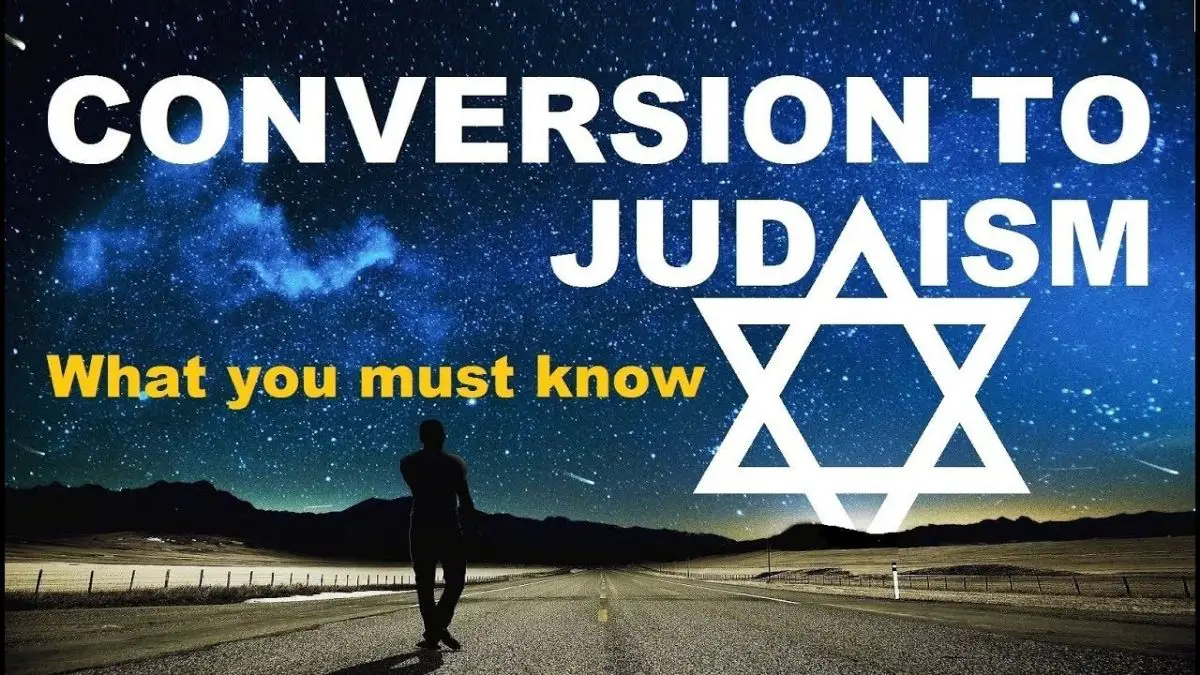In the beginning, (2500 B. C. E.–300 B. C. E) there was no such thing as “Judaism” and the term “conversion” would have been an anachronism.
And yet, the early Hebrew tribes and later the Israelites who settled in Canaan land did attract and welcome new members. The Bible contains many stories about people who joined the tribe, nearly always through marriage, as was the case with Sarah, the first Jewish woman.
Although the Torah describes Abraham as having a direct relationship with God, Sarah’s connection to God and the covenant is mediated through her husband. At least at the beginning of their journey, she goes because he goes. One contemporary poet imagines Sarah’s “conversion” through the eyes of a present-day Jew-by choice:
I began this journey because I loved one Jew.
I sometimes imagine that, at least at first, our ancestor Sarah might have done the same, following her man from Haran to Canaan through all the hardships and terrors of ancient travel because she loved him no matter what his ideas or voices or perhaps precisely because of his ideas and voices.
Among the many others who married into the Jewish people and transformed its history is Asenath, the Egyptian wife of Joseph and mother of Ephraim and Menashe, whose names are mentioned in the traditional Friday night blessing for sons.
Tamar, daughter-in-law and then wife to Judah, gave birth to Perez, an ancestor of King David. Indeed, the Bible contains a remarkable number of important non-Jewish wives (Zipporah, a Midianite, was married to Moses) and non-Jewish mothers of heroic Jewish sons: Sarah, Asenath, Tamar, Ruth. Rechab, a prostitute who aided Joshua, is named as the mother of Jonadab and honored by the tradition.
Israelite society seemed willing to grant full membership to anyone who wanted it, regardless of his or her past. Slaves and the children of slaves became equals, as did foreigners of all descriptions.
Indeed, Ruth, the most famous convert, is an example of how conversion was an option for anyone —even the hereditary enemies of the tribe. Ruth was not only a gentile, she was a Moabite, a tribe that the Torah forbade as marriage partners to the Jews.
The rabbis made much of the fact that Ruth the Moabite was an ancestor of King David, from whose line the messiah is to come.
Although the most commonly trod path, marriage was not the only way that non-Hebrews became members of the tribe in biblical times. The people who accompanied Abraham and Sarah from Haran, the first generation of Jews, could be called converts—people who left their parents’ homes and religious traditions for a radically different life.
Several generations later, when Moses brought the Torah down from Sinai, its laws were accepted not only by the Israelite descendants of Abraham and Sara but also by non-Jews who left Egypt with the Hebrews—called the “mixed multitude” in the Torah.
In other words, converts were present at Sinai— the crucial encounter that transformed a tribe of Hebrews into the Jewish people.
The rituals and laws of conversion were not formalized during biblical times. Hundreds of years later, the rabbis who wrote the Talmud embroidered tales of ritual immersion and circumcision around the multitudes at Sinai.
But conversion in those days was a process of assimilation and naturalization, of accepting the norms and rules of Hebrew culture and giving up other beliefs and practices.
At some point in history, those who wished to change their status from ger (stranger) to Yisrael may have been asked to make a sacrifice to the God of Israel. Or perhaps all it took to become a member of the tribe was a declaration of intent.
Indeed, Ruth’s famous speech to Naomi, “Whither thou goest, I will go,” may have been a formal statement of conversion. Whatever was required of adults, however, their children automatically became full members of the community.
In the later writings, the Bible gives voice to the tension between the desire to welcome strangers and the need to maintain a discrete Jewish identity. The prophets Ezra and Nehemiah railed against intermarriage, for example.
Their complaint was not against all foreign-born wives, however, but against those who did not adopt the customs of the Israelites and maintained their pagan practices; in essence, the prophets were insisting on the need for sincere conversion.


